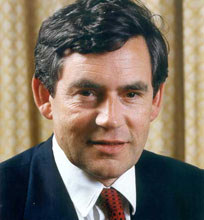Brown says Iran is "test case" for nuclear co-operation
 London - British Prime Minister Gordon Brown Tuesday urged Iran to "make the right choice" in its current stand-off with the West over its nuclear programme and said Tehran could become a "test case" for co-operation between atomic nations and non-nuclear states.
London - British Prime Minister Gordon Brown Tuesday urged Iran to "make the right choice" in its current stand-off with the West over its nuclear programme and said Tehran could become a "test case" for co-operation between atomic nations and non-nuclear states.
Brown, in a speech in London, said Iran remained a "critical proliferation threat" while it continued to enrich weapons grade uranium and risked severe sanctions.
However, if the government in Tehran decided to opt for an exclusively civil nuclear programme the benefits and rewards in the form of international assistance would be substantial, Brown told diplomats and scientists in his speech in London.
"I urge Iran, once again, to work with us rather than against us upon this. The opportunity to do so remains on the table and the choice is theirs to make. I think they will make the right choice," said Brown.
He argued that Iran could be a test of how nuclear nations can work together with non-nuclear states to equip them with sources of new energy.
"We have to create a new international system to help non-nuclear states acquire the new sources if energy they need," said Brown.
His speech, though reiterating the Western offer of technological assistance if Tehran chose to go down the route of civil nuclear power, was described by diplomats as "important" because of its timing.
Brown wanted to "get on with opening up the dialogue with Iran" ahead of the planned Afghanistan conference in The Hague later this month which will be attended by representatives from Iran, said one diplomatic observer.
"He (Brown) wants to give a strong signal to Iran not to drop the ball, but to pick it up," said one analyst.
Along with the current review of US policy towards Iran Brown's appeal could mark the beginning a a process that would "unravel 30 years of discord" with Iran and bring the country back into the international fold.
Brown described Iran as a "test case" of a country which had the "right to develop nuclear power" while being made fully aware that the development of atomic weapons was "unacceptable."
"Continue in this way and face further and tougher sanctions - or change to a UN-overseen civil nuclear energy programme that will bring the greatest benefits to its citizens," said Brown. (dpa)